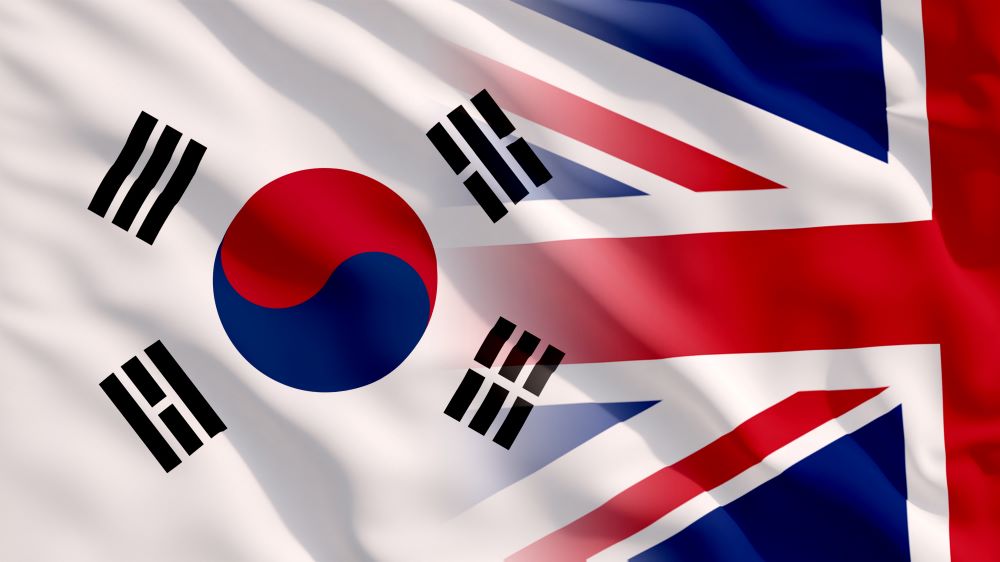
The prime minister’s office yesterday (20 November) announced plans for the UK and South Korea to sign a new free trade agreement and an interim accord.
The Downing Street Accord represents a deeper relationship between the two countries, with any future trade agreement enhancing the EU rollover agreement put in place following the UK’s formal departure from the bloc in 2021.
Prime minister Rishi Sunak said the deal “will drive investment, boost trade and build a friendship that not only supports global stability, but protects our interests and lasts the test of time”. He added that:
“As two nations focussed on innovation, harnessing new technologies and defending the international, rules-based order, the UK and Republic of Korea are natural partners.”
The accord is set to be signed during president Yoon Suk Yeol’s visit to the UK this week, with business and trade secretary Kemi Badenoch set to meet her South Korean counterpart at Mansion House to begin trade talks on Wednesday.
Boosting economic ties
Following the accord, South Korean firms are set to invest a reported £21bn in UK renewable energy and infrastructure projects, with a further £3bn worth in trade expected.
Looking ahead to a future trade deal, Badenoch said that a “refreshed, modernised deal will boost our world-leading services sector, while also creating new opportunities for UK exports”, per Reuters.
South Korea is the world’s 13th largest economy, with a substantial market of approximately 45m middle-class consumers, and it’s hoped a deal will offer UK business better access to this market.
Technology
The accord outlines a forward-thinking set of priorities, with a particular focus on technology. This includes commitments for the countries to cooperate on AI, quantum computing and semiconductors.
Innovate UK, which provides government-funded grants for businesses developing capabilities across research-intensive areas, such as AI and clean growth, will invest over £8.5m in joint innovation programmes with South Korea.
For the first time, these programmes will focus on semiconductors; not only their development and application, but also ensuring the security of the supply chain. This comes at a time of escalating trade tensions surrounding the technology. With the US placing export controls on sales of chips to China earlier in the summer, which was followed by China curbing its supply of graphite – a critical mineral in the manufacture of electric vehicle batteries.
The closer cooperation on technology was cemented symbolically with the UK handing over the reins of the world’s first AI Safety Summit, hosted in Bletchley Park at the beginning of this month. South Korea will co-host the next summit with the UK in six months.
Trade relationship
According to Department of Business and Trade figures, in the year to June 2023 trade between the UK and South Korea was worth an estimated £16.1bn. This reflected a decrease of 5.2% on the previous year.
This was led by a fall in UK exports to South Korea – £1.5bn less in goods and services was sold than in the year to June 2022, equating to a 14.6% fall. Over the same period, UK imports from South Korea rose by over half a billion (8.5%) to £7.5bn.
This made South Korea the UK’s 25th largest trade partner in the year to June 2023.



